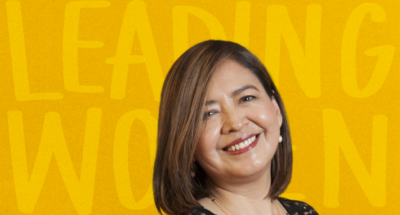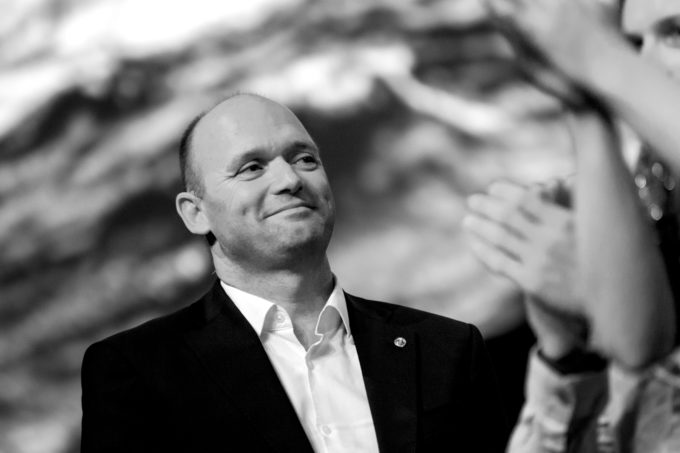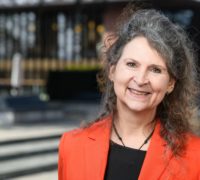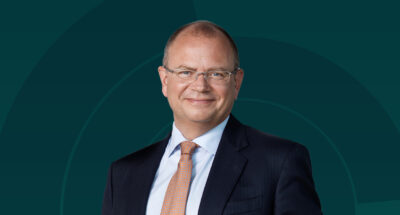
How to teach an entrepreneur to let go
Biotech entrepreneur Juana Lucia Flores-Candia explains that technology has changed the way to mentor chief executives. Here are her three ways to get entrepreneurs to focus....
16 March 2021 • by Susan Goldsworthy in Magazine
As a successful yacht racer Mark Turner knows that one tiny slip can prove fatal, but in business he believes taking risks and making mistakes should be encouraged....
Mark Turner explains his philosophy to Susan Goldsworthy.
Yacht racer turned entrepreneur Mark Turner comes from seafaring stock: his father was an avid sailor and got him into the sport as a child on the Isle of Wight off the south coast of England. Turner followed in his father’s footsteps, going on to become a leading figure in professional sailing, both for his feats as an athlete and a leader of the sport
His first race in 1989 was aboard British Defender in the Whitbread Round the World Race, aged just 22. He has since competed in many of the world’s top offshore races, including Transat Jacques Vabre and the Mini Transat. He paired his passion for the sea with business, co-founding in 1997 Offshore Challenges, a sports marketing and events company that launched the Extreme Sailing Series as well as cycling’s Haute Route. Turner co-founded the business with fellow Briton Dame Ellen MacArthur. He masterminded her success in the 2000s when she came second in the Vendée Globe, becoming the fastest woman ever to circumnavigate the globe – in 94 days, four hours, five minutes and 40 seconds.
Turner’s first career, though, was with the Royal Navy, where he spent several years before leaving to strike out on his own. He later co-founded Winning Winches, a company that sold winches to a team in the America’s Cup. Later, Turner became the marketing director for Spinlock, which sold marine equipment, alongside his career as a keen sailor.
In 2016, he was named CEO of the Volvo Ocean Race, where he focused on modernizing and reinventing the competition off the coast of Alicante, Spain. He stepped down in 2017 and now works as a consultant to small businesses while he’s also exploring a new passion: open water swimming. Turner spoke about how to maintain peak performance, build strong teams – and use business as a platform for positive change in society.

From being in the Royal Navy, to running a global sports and events management company and working with Dame EllenMacArthur, one thing all of your pursuits have in common is water. Where does this passion come from?
I have water in my veins. I grew up next to the sea, on the Isle of Wight in England. I would spend every minute on the beach. My father would be in the sailing club the whole time; he took me along. And the only real sports facility nearby was a swimming pool that the local community built, brick by brick. So it’s not surprising that my two sports ended up being swimming and sailing.
What connections do you see between sports and business?
Lots. In sailing, you’ve got to raise lots of funding. It’s like you’re running a small business. Sports teams also have many of the same challenges you have in business, except the consequences of missing a deadline are much more significant. If the results of a company drift 3%, everything’s still good. But a 3% drift in the performance of a sports team can be the difference between winning or losing. You’ve got to be performing at 100%, because the impact of your lack of preparation on the end result is significant.
Of course, we are all human. We all make mistakes. Mercedes-Benz Motorsport speaks a lot about a ‘no-blame’ culture after operational errors. How do you create a good team culture?
This is the number one culture problem in many organizations: blame. And when I first became a leader, I was driving my team forward almost at all costs. I drove people really hard; but I’ve learnt over time that leaders need to create a culture where mistakes are tolerated, even encouraged, because you need people to learn from them and take risks. If you’re not making mistakes, you’re not pushing the boundaries of performance hard enough. You also need to create an atmosphere where people are not afraid to share their views, so they bring new solutions to the table.
In sports and business alike, we tend to focus on maintaining peak performance. But we also know that in both domains, rest and recovery are important, especially in the pandemic when the risk of burnout is so high. What can the world of business learn from sports about rest and recovery?
In sports, you can’t train every day at full whack because you actually get fitter during the recovery phase when adaptations happen in the body. And I suspect the same is true from a work perspective. Especially if you’re working from home, you need to take time out from Zoom after Zoom meeting to reflect and rebuild your mental strength so that when challenges come, as they undoubtedly will, you have the energy and the optimism to deal with those problems. It could be as simple as 20 minutes a day of stretching, just something that takes you away from the daily routine. The impact on your physical and mental health will be enormous.
For me, sport has been the way to build mental as well as physical strength. Most business leaders today appreciate the need for a balance. It’s also important that they encourage their team to take time out for exercise as well. You will get so much more from your people by building their trust. It’s not the hours they put in that makes the difference in terms of performance; it’s the quality of the work, the energy they bring to the organization. Doing exercise as a team can also be great for building internal unity.
On races around the world you have spent 30 days offshore. How do you find time for rest and recovery?
On the boat, you can’t choose when you rest, but when you have a moment when there isn’t a sail change or something to do with keeping the boat at 100% performance, you need to use that moment for respite, whether it’s for repairing the boat or repairing the people. Because if you make one small mistake in that environment, the consequences can be significant. There will be mistakes. Things will go wrong. It’s the same in business. Leaders need resilience in spades. Your team will be looking to you for that positivity in difficult times.
Leaders often say it’s lonely at the top. But it doesn’t have to be, does it? How do you build a strong team environment?
Sometimes you can’t take all the stress on your own. The key thing is having a great team to support you. A leader is not the smartest person in the company. You need to be able to see and nurture talent. And if you can fully trust the team and they trust you, that makes a big difference. Trust primarily comes from honesty and humility. You have to show some vulnerability to build trust with employees. I have shed many tears in front of my team; I’m known for it. You’ve got to let your barriers down a little bit; that’s when you back each other as a team.
You can have the best people in the world, but if they don’t fit together in a team, then you will fail. We’ve seen that in sports with football teams. In business, the compositions of leadership teams have to be right as well. And you can trade-off a little bit of talent or experience for a team that works well together. They’ll go up the learning curve quicker and will overtake competitors.
When you ran the Volvo Ocean Race, you focused on improving sustainability. What is the social responsibility of sport?
We tend to live fairly sedentary lives; most people are sitting down to work. There’s no question about the importance of sport in motivating people to move and be healthy. But I think things have progressed massively in the last couple of years. Just like business, sport needs to improve its ESG (environmental, social and governance) credentials further. I don’t think it’s acceptable anymore to see your mission as an athlete to entertain, or even inspire. You need to have a bigger purpose, which really benefits society.
At Volvo, we got rid of single use plastic in the event. We saw it as our broader responsibility to use our race as a platform for positive change. These big events can have a significant impact on people, influencing their behavior. We faced a lot of skepticism at first, but I saw it as our duty to act.
How do you create a collective vision or purpose?
The first thing is having clarity of vision. If it’s really clear what you’re trying to achieve, that will motivate and inspire people. You also need to communicate that vision, but build a solution with your team rather than trying to impose it. Leaders usually have great intuition, but that’s not enough for everyone else to trust you. If you include a wider range of perspectives in the discussion, the solution will be better because it will have been challenged and improved. And the best ideas today are going to come from someone junior in the company, because they have a fresh view of the company.
How we measure success is also important. If we want to be genuinely making the right decisions for the planet, we need to fully integrate all aspects of ESG into our performance metrics. Because once we start measuring that, we won’t just be chasing dollar returns. There’s too much focus on short-term profit and loss. That’s not what really matters. That is usually what slows down great organizations and turns them into average ones.
The best ideas are going to come from someone junior in the company, because they have a fresh view
You have spoken about the importance of diversity and inclusion. So, how do we make sport more inclusive?
In sailing, that’s a particular challenge because you have to raise lots of money for equipment. I think it’s up to the sports leagues themselves to create more of a level playing field. But, in general, most sports don’t cost much and can be accessed by most people. That’s the great thing about sport.
Currently, I’m doing a diploma to become a non-executive director, which is challenging. I’m an advisor to lots of different companies at the moment, which is a great way to share my mistakes and the lessons I’ve learnt. On a personal front, I still have some sporting goals, whether it’s skiing or mountaineering. I also hope to get back to swimming pools when they open again after the lockdown ends. But what I would really love to do is build a new business. I am focusing on my work with the Léman Hope, an organization which, through sailing, supports, inspires and empowers young people recovering from cancer to embrace their future with optimism.

Affiliate Professor of Leadership, Communications and Organizational Change at IMD
Susan Goldsworthy OLY is an Affiliate Professor of Leadership, Communications and Organizational Change at IMD. Co-author of three award-winning books, she is also an Olympic swimmer. She is a highly qualified executive coach and is trained in numerous psychometric assessments. She is Director of the IMD Executive Coaching Certificate.

20 November 2023 • by Juana Lucia Flores-Candia in Leadership
Biotech entrepreneur Juana Lucia Flores-Candia explains that technology has changed the way to mentor chief executives. Here are her three ways to get entrepreneurs to focus....

17 November 2023 • by Michael D. Watkins in Leadership
Executives winning promotion must navigate their transition with a balance of humility, respect for legacy, and a vision for the future....

14 November 2023 in Leadership
Henrik Andersen discusses with IMD President Jean-François Manzoni the challenges of navigating supply chain disruptions and soaring raw material costs over the past three years, and why he changed the wind farm...
Explore first person business intelligence from top minds curated for a global executive audience